Please find below some photographs of the visit of His Excellency Qu Xing, the Chinese Ambassador, to the city of Poperinge on Tuesday, 12 January 2016.
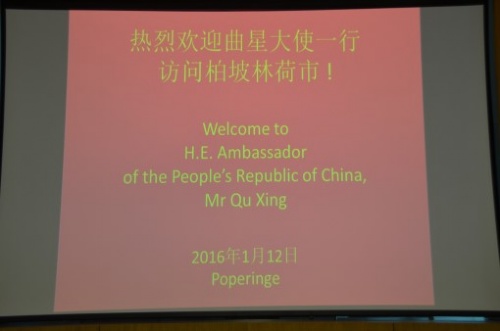
Welcome by mayor Christof Dejaegher on behalf of the city of Poperinge.
éHis Excellency the Ambassador of China, members of the Chinese embassy, dear Sirs and Madams,
On behalf of our vivid town of Poperinge, I am very pleased to welcome you all. Poperinge is a town that has known a history of flourishing cloth and hop trade, but that was also part of one of the darkest pages in history: The Great War of 1914-1918. During this war, many camps were set up in the outskirts of the city, only a few kilometres behind the Western front. In July 1917 the first Chinese labourers arrived in Poperinge.
Recruitment of these labourers began in 1916. In France and Belgium, they lived in labour camps and worked digging trenches, unloading ships and trains, laying tracks and building roads, and repairing tanks. After the war many workers collected bodies and unexploded munitions from the battlefields. Many of the workers had never left their villages, let alone their country, and the experience of joining an industrial war must have been overwhelming.
As if this wasn’t enough, the outbreak of Spanish Flu that swept over Europe after the war claimed many Chinese lives. 35 of the war’s Chinese victims are buried at the cemetery of Lijssenthoek. They all died of the Spanish Flu.
Grateful for what your ancestors have sacrificed for our freedom, we insist on honoring them and keeping their memory alive. In 2017 we commemorate the labourers and reflect on our perception towards foreign cultures with an exhibition, a Chinese shadow theatre and Chinese festival.
Perception is the point of departure for the exhibition. A photographer, author and artist will investigate the Chinese presence in the Westhoek. In the summer season of 2017, a shadow theatre will take place and in the first weekend of September Poperinge will be completely immersed in a Chinese atmosphere. During the Chinese festival the positive perception is mainly boosted: dragons in the streets of Poperinge, a real Chinese buffet, lanterns and tea houses, music, song and dance, calligraphy workshops, .... Poperinge co-operates with the Howest Confuciusinstituut, the Centre for Chinese Language and Culture (located in Bruges) for the programme.
I would also like to present to you this bronze statue of a ‘coolie’ (labourer) and a bronze plaque bearing the names of the thirteen labourers who died at Busseboom, near Poperinge. This Chinese memorial will be installed and unveiled in late 2017 near the former camp. Ideally this will happen on 15 November 2017, the day The Thirteen lost their lives.
Before giving the floor to Mr. Philip Vanhaelemeersch, I would like to thank you for visiting our town and for joining us in remembrance.
Mr. Vanhaelemeersch, representing the Institute Confucius Howest Brugge and the non-profit association Busseboom, will now illustrate why Poperinge is of crucial importance for the commemoration of het Chinese labourers of the First World War."
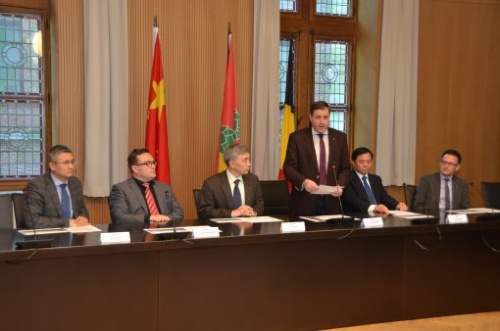
The Chinese Ambassador
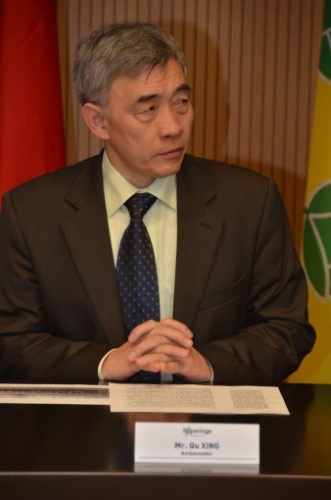
Short historical information on the Chinese labourers at Poperinge during the Great War.
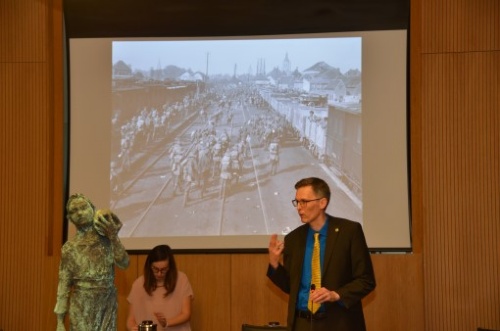
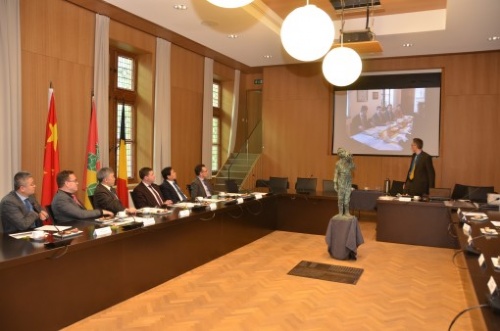
Exchange of gifts.
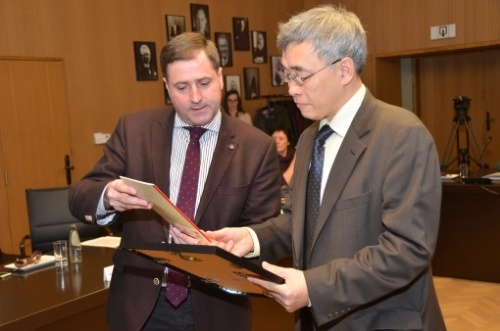
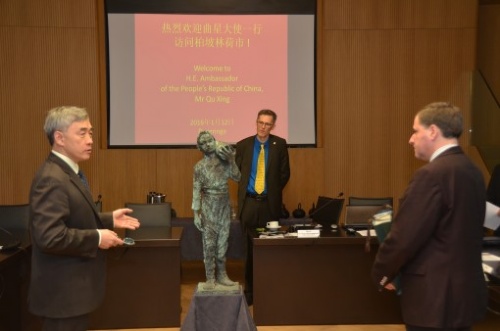
The statue of the Chinese coolie which will probably be installed at Poperinge in November 2017.
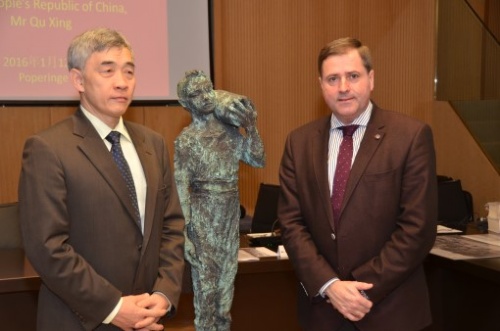
Visit of Lijssenthoek Military Cemetery.
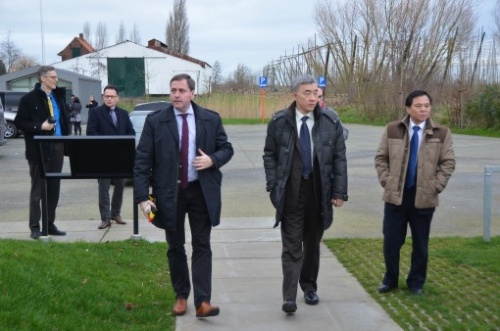
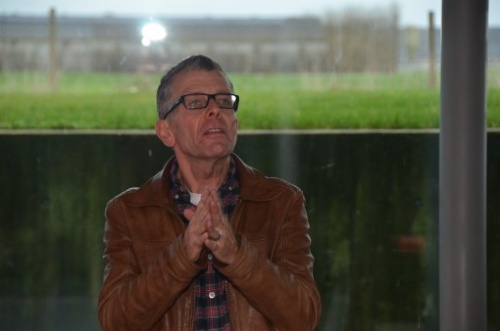
In the visitor centre.
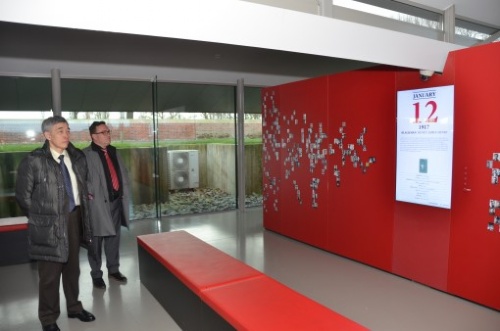
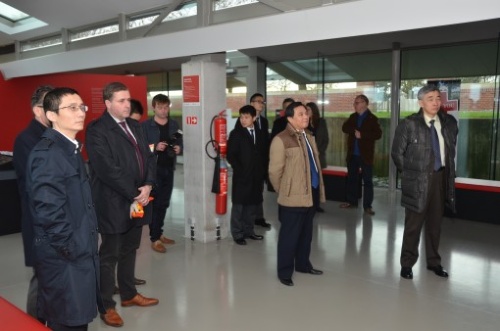
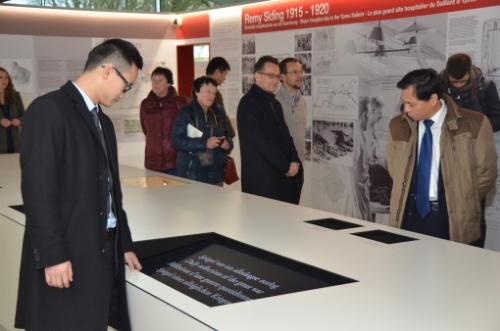
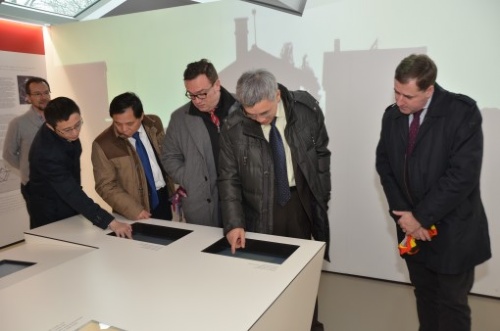
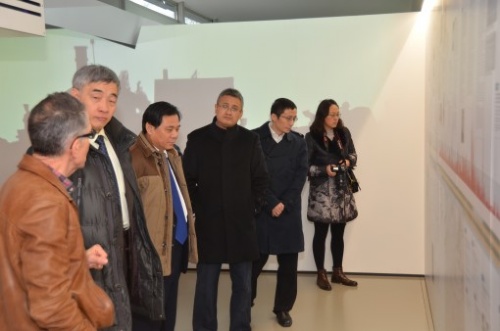
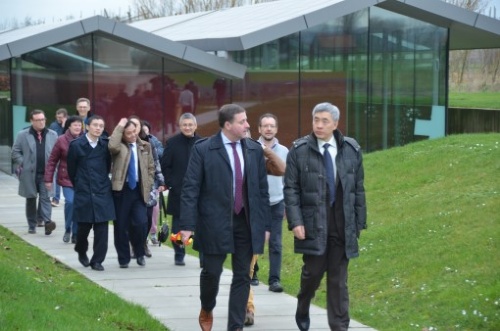
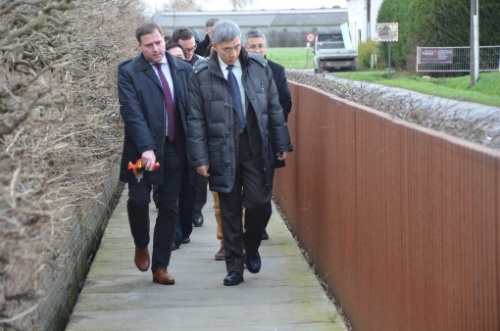
On the cemetery.
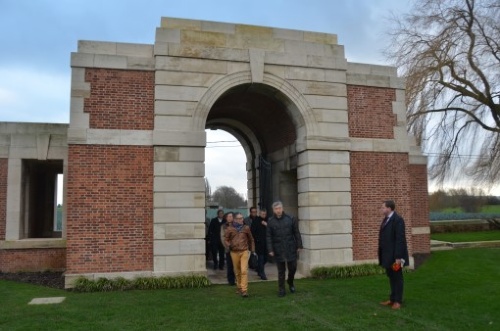
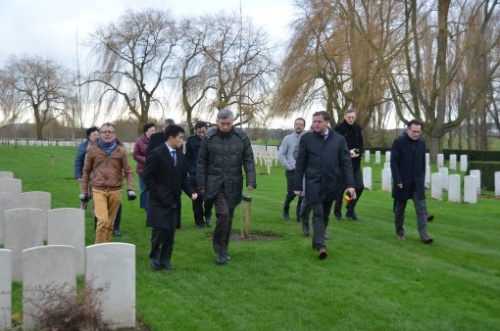
The plot where 37 Chinese labourers are buried.
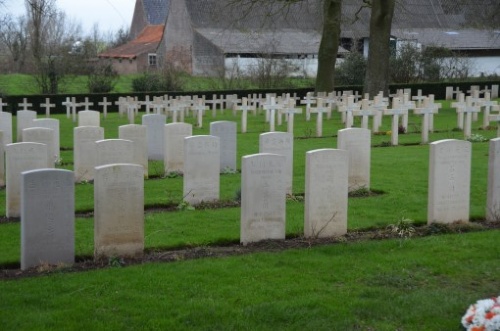
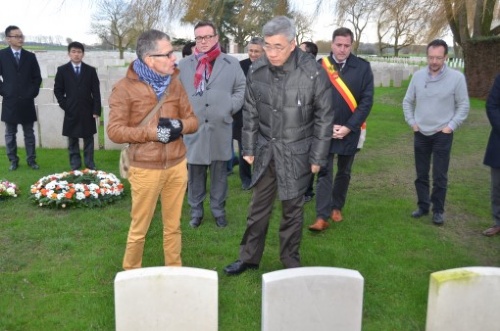
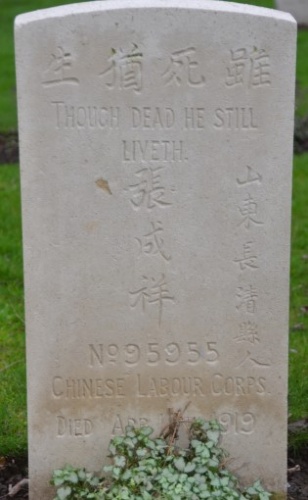
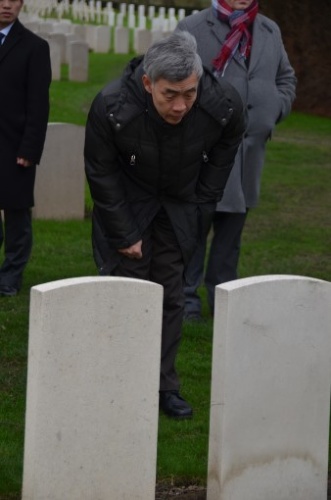
Wreath laying.
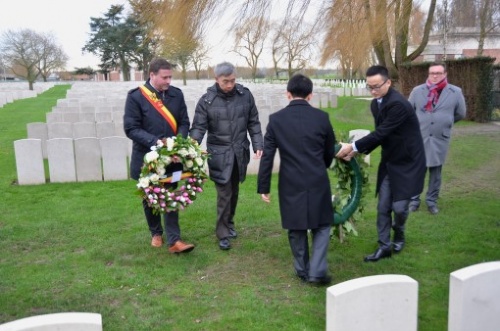
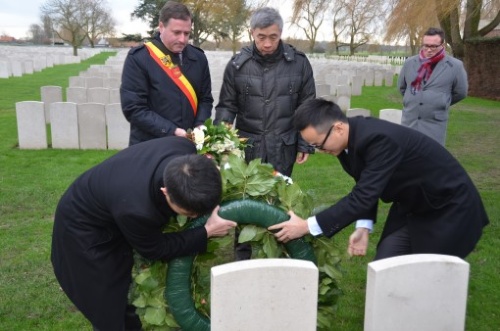
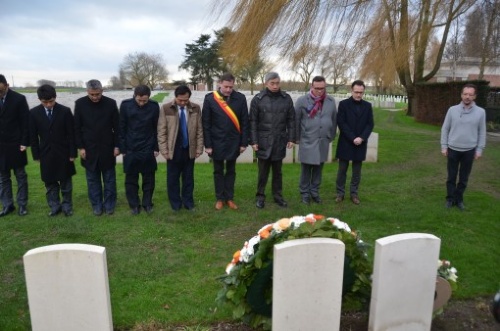
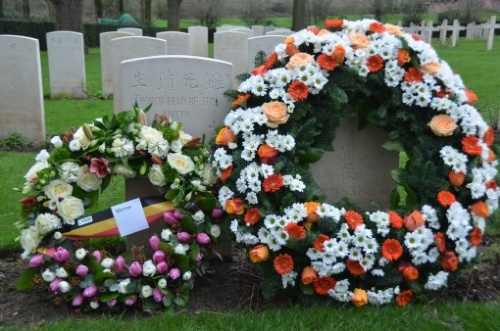
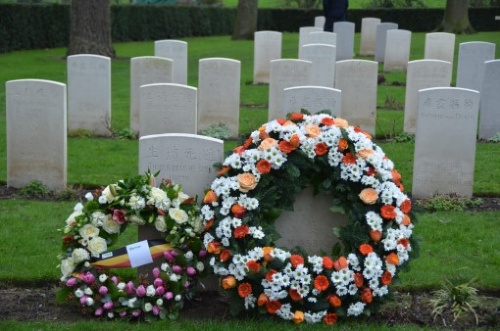
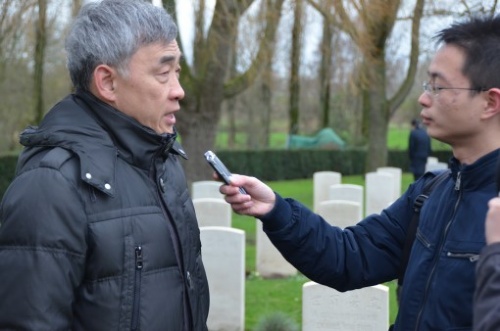
Page made by Westhoek.be / WO1.be - Greatwar.be.